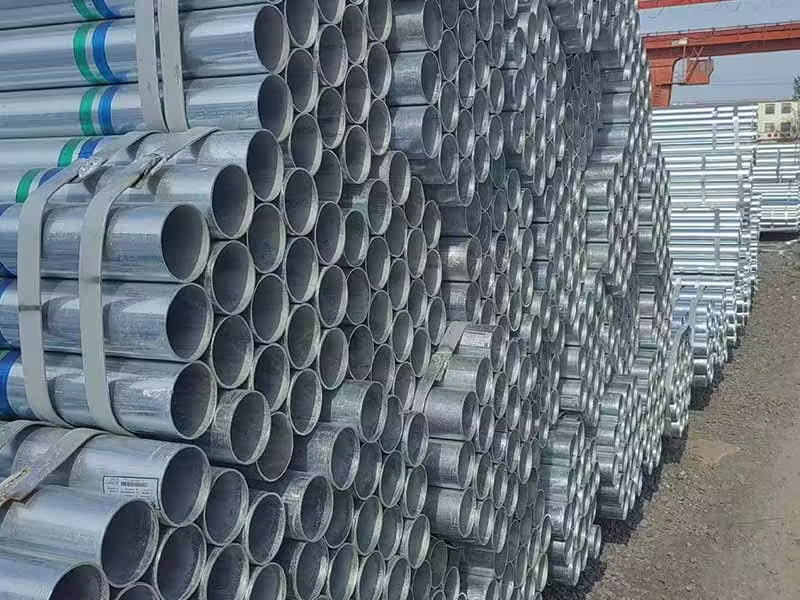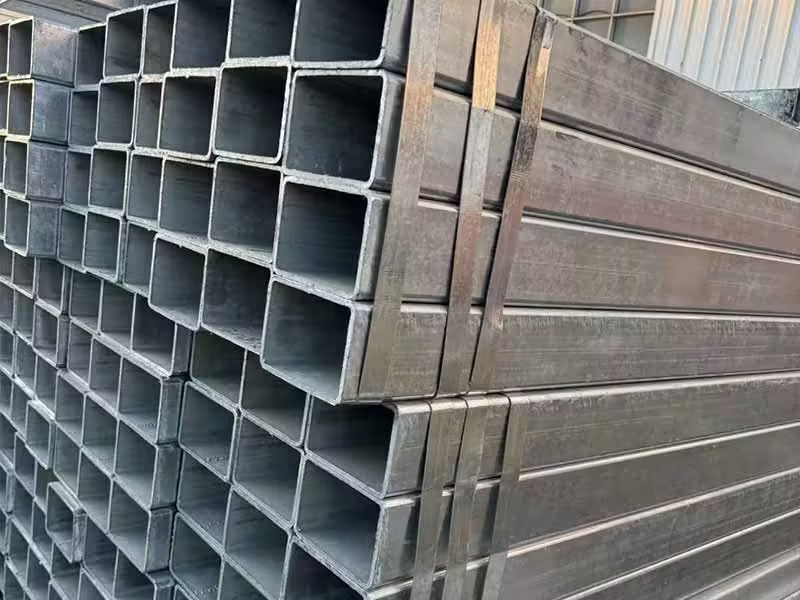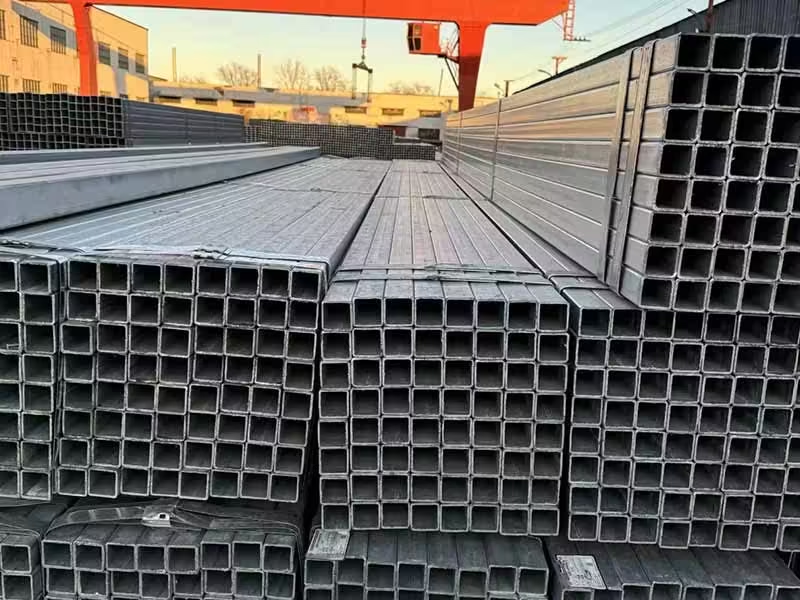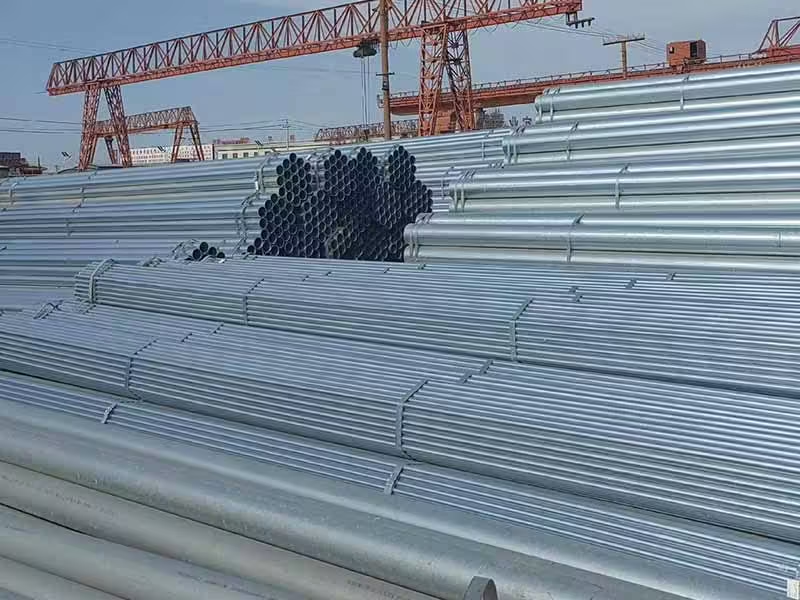내 블로그에 오신 것을 환영합니다!
본론으로 들어가기 전에, 제가 더 많은 정보를 공유하고, 커뮤니티와 소통하고, 업데이트를 게시하는 소셜 미디어 플랫폼에 함께해 주세요. 저와 소통하는 방법은 다음과 같습니다.
페이스북:https://www.facebook.com/profile.php?id=61571539990739
자, 이제 함께 여정을 시작해 볼까요? 여기 있는 내용이 통찰력 있고, 흥미롭고, 가치 있다고 느끼시기를 바랍니다.
목차
소개

산업 현장에서는 까다로운 환경과 내구성의 필요성 때문에 건설 및 인프라용 자재 선택이 매우 중요합니다. 견고성과 내식성이 뛰어난 소재 중 하나가 아연도금 강관입니다. 아연도금 강관이 무엇이고 산업 현장에서 어떻게 기능하는지 이해하는 것은 엔지니어, 시공업체, 그리고 시설 관리자에게 귀중한 통찰력을 제공할 수 있습니다.
이 포괄적인 가이드에서는 아연 도금 강관의 특성, 용도 및 이점을 살펴보고, 산업 프로젝트에 대한 정보에 입각한 결정을 내리는 데 도움을 드립니다.
아연 도금 강관 이해
아연 도금 강관이란?
아연도금 강관은 내식성 향상을 위해 아연층으로 코팅된 강관의 한 종류입니다. 아연도금 공정은 강관에 아연 코팅을 입히는 과정으로, 일반적으로 용융아연도금이나 전기아연도금을 통해 이루어집니다. 이 아연 보호층은 습기와 부식성 물질로부터 보호막을 형성하여 강관의 수명을 크게 연장합니다.
아연 도금 강관의 주요 특성
- 부식 저항성: 아연 도금 강관의 주요 장점은 높은 내식성입니다. 아연 도금은 하부 강관을 녹과 환경적 손상으로부터 보호합니다.
- 내구성: 아연 도금 강관은 강도와 내구성이 뛰어나 고강도 용도에 적합합니다.
- 낮은 유지 보수: 보호용 아연 코팅으로 인해 잦은 유지관리와 수리의 필요성이 줄어들어 아연 도금 강관이 비용 효율적인 선택이 됩니다.
- 다재: 아연 도금 강관은 배관, 건설, 산업 현장 등 다양한 용도로 사용될 수 있습니다.
산업 현장에서 아연 도금 강관의 적용
배관 시스템
아연 도금 강관은 뛰어난 내구성과 내부식성으로 배관 시스템에 널리 사용됩니다. 주택 및 상업용 배관에 모두 적합하며, 안정적인 급수 및 배수 솔루션을 제공합니다. 아연 도금은 파이프의 녹을 방지하여 장기적인 성능을 보장하고 누수 및 막힘 위험을 줄여줍니다.
구조적 지지
산업 현장에서 아연 도금 강관은 뛰어난 강도와 내구성으로 인해 구조용 지지대로 자주 사용됩니다. 골조, 지지대, 비계 제작에 사용되어 다양한 구조적 요구에 부합하는 견고하고 신뢰할 수 있는 솔루션을 제공합니다. 아연 도금 강관은 뛰어난 내식성을 갖추고 있어 실외 및 혹독한 환경에도 적합합니다.
전기 도관
아연 도금 강관은 전기 배선과 케이블을 보호하는 전기 도관으로도 사용됩니다. 보호 아연 코팅은 파이프의 손상 방지와 부식 방지를 보장하여 전기 시스템에 안전하고 신뢰할 수 있는 경로를 제공합니다. 따라서 아연 도금 강관은 산업 전기 설비의 필수 구성 요소입니다.
배관 시스템
아연도금 강관은 유체 및 기체 수송을 위한 산업용 배관 시스템에 널리 사용됩니다. 내식성이 뛰어나 물, 공기, 화학 물질 등 다양한 매체를 처리하는 데 적합합니다. 아연도금 강관은 내구성이 뛰어나 장기적인 성능을 보장하고 잦은 교체 필요성을 줄여줍니다.
펜싱 및 장벽
아연도금 강관은 뛰어난 강도와 내구성으로 울타리 및 방벽 건설에 자주 사용됩니다. 보안 및 안전 분야에 견고하고 신뢰할 수 있는 솔루션을 제공하여 최소한의 유지 보수로 장기적인 성능을 보장합니다. 아연도금 강관은 내식성이 뛰어나 다양한 환경에서 옥외 사용에 적합합니다.
비교 아연 도금 강관 다른 재료와 함께
| 재료 | 부식 저항성 | 내구성 | 유지 | 비용 | 일반적인 응용 프로그램 |
|---|---|---|---|---|---|
| 아연 도금 강관 | 높은 | 높은 | 낮은 | 중간 | 배관, 구조 지지대, 전기 도관, 펜싱 |
| 스테인리스 스틸 파이프 | 매우 높음 | 높은 | 낮은 | 높은 | 식품 가공, 제약, 화학 공장 |
| PVC 파이프 | 높은 | 중간 | 낮은 | 낮은 | 배관, 관개, 화학 물질 취급 |
| 구리 파이프 | 높은 | 중간 | 낮은 | 높은 | 배관, 전기 배선 |
| 주철 파이프 | 중간 | 높은 | 중간 | 중간 | 하수 시스템, 물 공급 |
아연 도금 강관 선택 시 고려해야 할 요소


부식 저항성
아연 도금 강관을 선택하는 주된 이유는 내식성 때문입니다. 아연 도금은 습기와 부식성 물질로부터 보호막을 형성하여 장기적인 성능을 보장하고 유지 보수 비용을 절감합니다. 아연 도금 강관이 적합한 선택인지 판단하려면 해당 용도의 특정 환경 조건을 고려해야 합니다.
내구성
아연 도금 강관은 뛰어난 강도와 내구성으로 잘 알려져 있어 중부하 작업에 적합합니다. 상당한 기계적 응력과 환경 노출에도 견딜 수 있어 장기간 안정적인 성능을 보장합니다. 프로젝트의 구체적인 요구 사항을 평가하여 아연 도금 강관의 내구성이 귀사의 요구 사항을 충족하는지 확인하십시오.
유지 관리 요구 사항
아연 도금 강관은 보호용 아연 코팅 처리되어 유지 보수가 거의 필요하지 않습니다. 따라서 유지 보수가 어렵거나 접근이 제한적인 환경에서 비용 효율적인 선택입니다. 아연 도금 강관을 선택할 때는 프로젝트의 유지 보수 요건과 유지 보수 자원의 가용성을 고려하십시오.
비용
아연 도금 강관은 스테인리스 스틸과 같은 다른 내식성 소재에 비해 일반적으로 비용 효율성이 뛰어납니다. 내구성과 경제성을 모두 갖추고 있어 다양한 용도로 널리 사용됩니다. 프로젝트의 예산 제약과 아연 도금 강관 선택의 장기적인 비용 이점을 평가해 보세요.
신청 요건
운송 매체의 종류, 환경 조건, 파이프에 가해지는 기계적 응력 등 적용 분야의 구체적인 요구 사항을 고려하십시오. 아연 도금 강관은 다양한 용도에 적합하지만, 적합성은 프로젝트의 특정 조건 및 요구 사항에 따라 달라집니다.
아연 도금 강관 사용을 위한 실용적인 팁

적절한 설치
아연 도금 강관의 성능과 수명을 위해서는 적절한 설치가 매우 중요합니다. 파이프가 올바르게 설치되고 적절한 지지대와 연결부가 있는지 확인하십시오. 안정적이고 안전한 설치를 위해 제조업체의 지침과 업계 표준을 준수하십시오.
정기 검사
아연 도금 강관을 정기적으로 검사하는 것은 부식이나 손상 징후를 파악하는 데 필수적입니다. 눈에 띄는 녹이나 마모 흔적이 있는지 확인하고 문제가 발생하면 즉시 조치를 취하십시오. 정기적인 검사는 고장을 예방하고 파이프의 지속적인 성능을 보장하는 데 도움이 됩니다.
보호 코팅
경우에 따라 아연 도금 강관의 내식성을 강화하기 위해 추가 보호 코팅을 적용할 수 있습니다. 이러한 코팅은 부식성이 높은 환경에서 추가적인 보호층을 제공할 수 있습니다. 특정 용도에 추가 코팅이 필요한지 전문가와 상담하십시오.
적절한 보관 및 취급
아연 도금 강관의 적절한 보관 및 취급은 손상을 방지하고 성능을 유지하는 데 필수적입니다. 습기 및 부식성 물질에 노출되지 않도록 건조하고 보호된 장소에 보관하십시오. 설치 중 기계적 손상을 방지하기 위해 적절한 리프팅 및 취급 장비를 사용하십시오.
결론
아연도금 강관은 다재다능하고 내구성이 뛰어난 소재로 산업 현장에서 상당한 이점을 제공합니다. 높은 내식성, 강도, 낮은 유지 보수 요구 사항 덕분에 다양한 용도에 적합한 비용 효율적인 선택입니다.
아연 도금 강관의 특성, 용도 및 이점을 이해하면 산업 프로젝트에 대한 현명한 결정을 내릴 수 있습니다. 배관, 구조물 지지대, 전기 도관 또는 펜싱 등 어떤 분야에서든 아연 도금 강관은 안정적이고 오래 지속되는 솔루션을 제공할 수 있습니다.
자주 묻는 질문
아연 도금 강관은 무엇에 사용되나요?
아연도금 강관은 배관 시스템, 구조 지지대, 전기 도관, 배관 시스템, 펜싱 등 다양한 용도로 사용됩니다. 뛰어난 내식성과 내구성으로 다양한 산업 현장에서 실내외 모두에 적합합니다.
아연 도금 강관은 어떻게 만들어지나요?
아연도금 강관은 강관에 아연층을 코팅하여 제작됩니다. 가장 일반적인 방법은 용융 아연 도금으로, 강관을 용융 아연 용액에 담그는 방식입니다. 아연 코팅은 부식 방지 보호막을 형성하여 강관의 수명을 크게 연장합니다.
아연 도금 강관을 사용하는 장점은 무엇입니까?
아연도금 강관의 주요 장점은 높은 내식성, 내구성, 낮은 유지 보수 비용, 그리고 경제성입니다. 이러한 특성 덕분에 아연도금 강관은 다양한 산업 분야에서 신뢰할 수 있는 선택입니다.
내 프로젝트에 맞는 아연 도금 강관을 어떻게 선택해야 합니까?
아연 도금 강관을 선택할 때는 내식성, 내구성, 유지 보수 요건, 비용, 그리고 적용 요건 등의 요소를 고려하십시오. 프로젝트의 구체적인 조건과 필요 사항을 평가하여 아연 도금 강관이 적합한 선택인지 확인하십시오.
아연 도금 강관에는 어떤 유지관리가 필요합니까?
아연도금강관은 보호 아연 코팅 처리되어 있어 최소한의 유지 관리만 필요합니다. 부식이나 손상 징후가 있는지 정기적으로 점검하는 것이 필수적입니다. 경우에 따라 부식성이 높은 환경에서는 내식성을 강화하기 위해 추가 보호 코팅을 적용할 수 있습니다.

